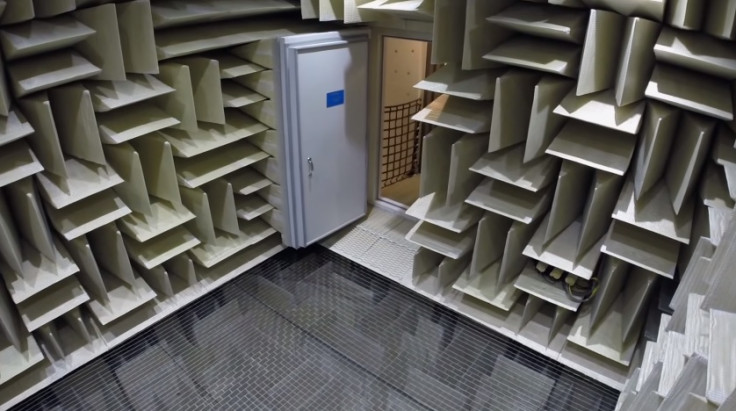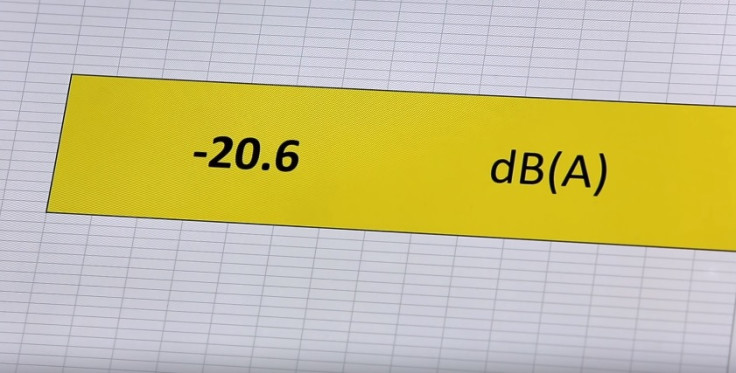The quietest place on Earth: Microsoft builds a room where sound goes to die

Microsoft recently made a lot of noise over its new smartphones and tablets but it's also got something else to shout about after creating the quietest place on the planet – a record-breaking room that's almost as silent as the sound of air molecules colliding together.
The anechoic chamber, known as Building 87, is a state-of-the-art acoustic environment with sound absorption levels of 99-100% designed for testing audio equipment. This particular room has been measured at -20.6db.
That's a level of silence unheard of even by Arsenal fans. Microsoft posted on its blog a video about the chamber and the moment it was officially listed by the Guinness Book of Records as the quietest place on earth - shattering the previous most silent spot, Orfield laboratories which clocked in at -13db.
How quiet is Microsoft's Building 87?
Microsoft calls Building 87 the place where sound goes to die and to put its quietness in perspective, outside the vacuum of space the quietest noise known to man is the theoretical Brownian Motion, which is the noise created by colliding air molecules measured at -23db. Microsoft's chamber is just a few decibels louder. The human threshold of hearing is 0dB, where we cannot hear anything, calm breathing measures 10dB, rustling leaves 20dB and normal conversation 60dB.
Building 87 is so quiet you would be able to hear your own heart beat and, like other anechoic chambers, prolonged time spent inside would effect a person's balance as audio cues from your environment are taken away.

"We designed this and other super-quiet acoustically-controlled chambers to engineer and build best-in-class audio products at Microsoft. We use these facilities for designing products like the Surface, HoloLens and Cortana, that we take great pride in," said Hundraj Gopal, PhD, Microsoft Principal Human Factors Engineer.
The chamber, created in collaboration with Eckel Noise Control Technologies, took just over a year to build and is covered in angular, sound absorbing wedges with a large thick door to seal it all. Building 87 has three anechoic sound chambers with the largest being built entirely on its own foundation that sits on top of anti-vibration springs.

R&D for Microsoft's latest products is conducted here, such as the speakers and microphone integrated into the new Surface range as well as the development of Microsoft's voice-based assistant Cortana. When you plug a device in to charge or even turn up the brightness on the display, noise is produced and being in a place that can detect this can help engineers understand more about their products and make them work better. "This chamber gives us the opportunity to look for those really small signals that can have an impact to the end user," said LeSalle Munroe, Microsoft Senior Engineer.
© Copyright IBTimes 2024. All rights reserved.






















